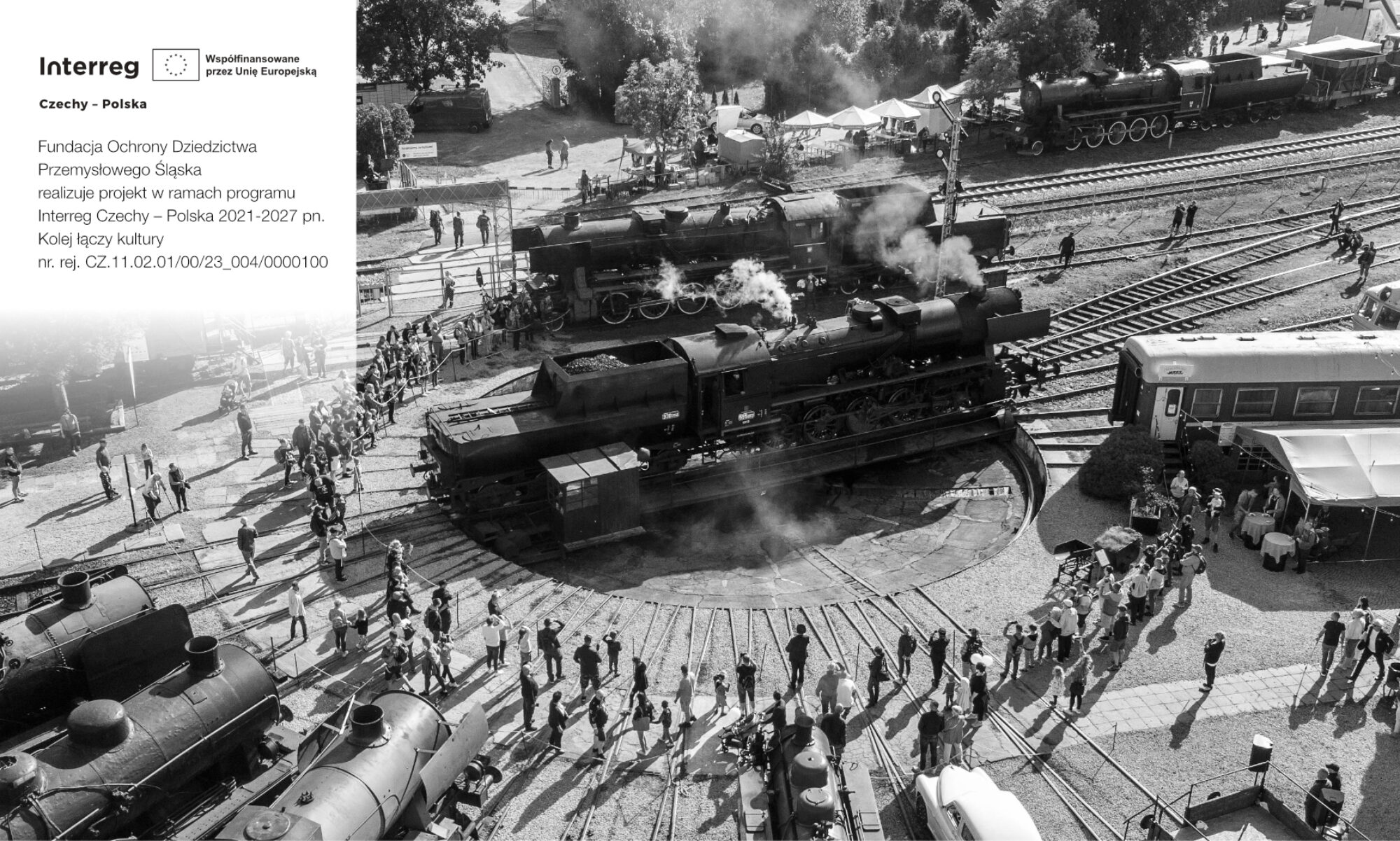ul. Wolności 4, 58-140 Jaworzyna Śląska, Poland
Historic Industrial Heritage, Poland
Preserving a 160-year tradition
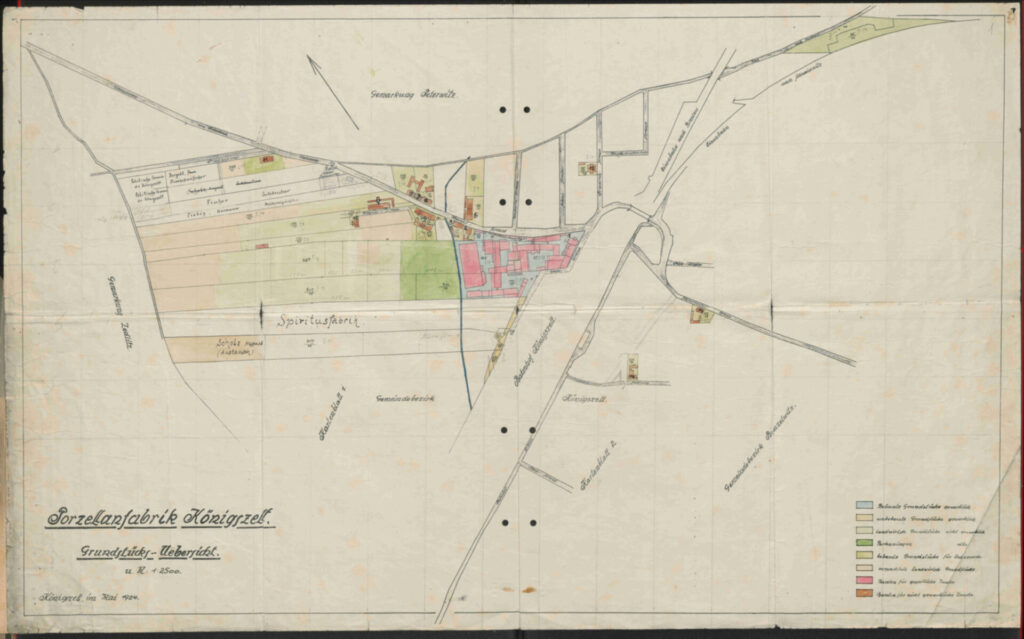
The KAROLINA Porcelain Factory, founded in 1860 in Jaworzyna Śląska (then Prussia), was strategically located near the railway to Wałbrzych coal mines. Established by Traugott Silber, it became one of Europe’s largest tableware porcelain producers, winning awards in Breslau (1870) and Vienna (1873). Its products reached European markets and the USA until World War I. In the 1930s it became a joint-stock company, changing ownership several times. After 1945 it was taken over by Poland, expanded, and employed 1,500 people, producing 30 tonnes monthly, mainly for Central Europe. Due to the economic downturn and a sharp rise in gas prices following Russia’s invasion of Ukraine, the factory went bankrupt and has been in liquidation since 2023, with the last 300 specialists laid off. Today it remains the last historic porcelain factory in Silesia and one of the last in Europe, preserving complete equipment, a historic production line, and a showroom. Its protection offers a chance to safeguard Europe’s porcelain heritage and local cultural identity.
The buildings of the Karolina Porcelain Factory in Jaworzyna Śląska are listed on the municipal register of monuments under numbers 120-126 by order of the Mayor dated 27 May 2024.
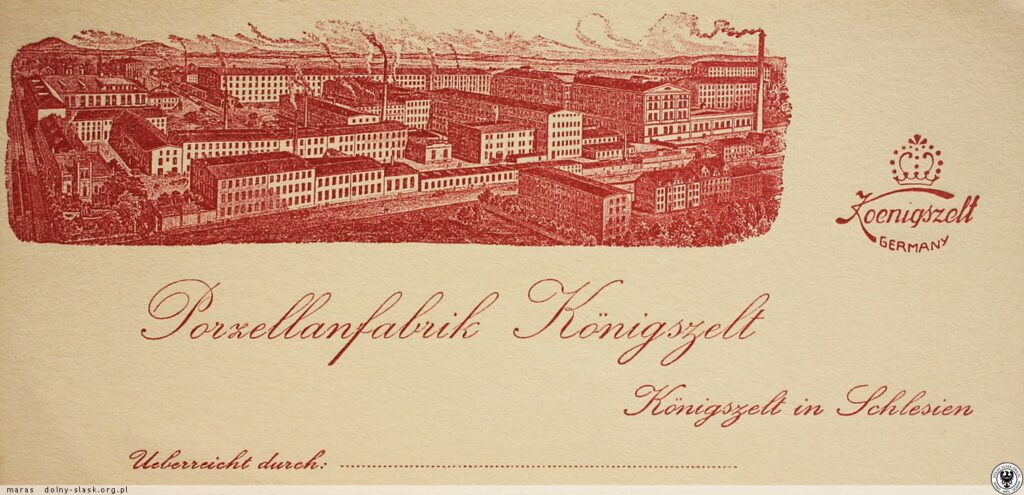
The villa belonging to the owner, Traugott Silber, is entered in the National List of Monuments under reference number A/4193/1562/Wł dated 25 March 1997.
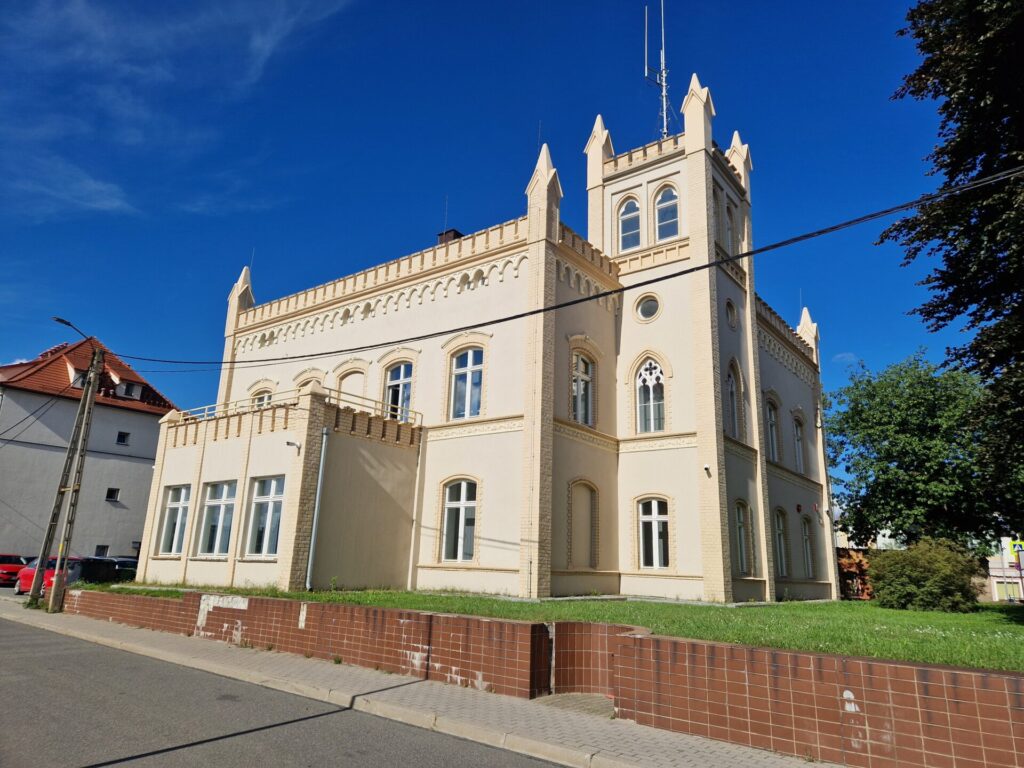
Heritage Significance
The Factory, dating back to the early 19th century (the beginning of the industrialisation era), has been fully preserved, showcasing various periods of development. The oldest buildings have been preserved, as well as those built in the early and mid-20th century. The factory is equipped with a full technical infrastructure (access roads, including a railway siding, yards, boiler room, warehouses, silos, transformers, etc.).
The production equipment, which is complete, functional and ready to be put into operation, is of exceptional value. The porcelain production process is fully visible, from the preparation of the raw material, through the creation of moulds and firing of the porcelain, to its decoration. The equipment consists of machines and production lines dating from various periods from the 19th century to the present day. The large production halls, mainly from the early 20th century, with rare, now uncommon types of concrete and steel structures, are unique.
The showroom displays historical and contemporary products manufactured by the company, as well as “mother” moulds from different periods in the factory’s history.
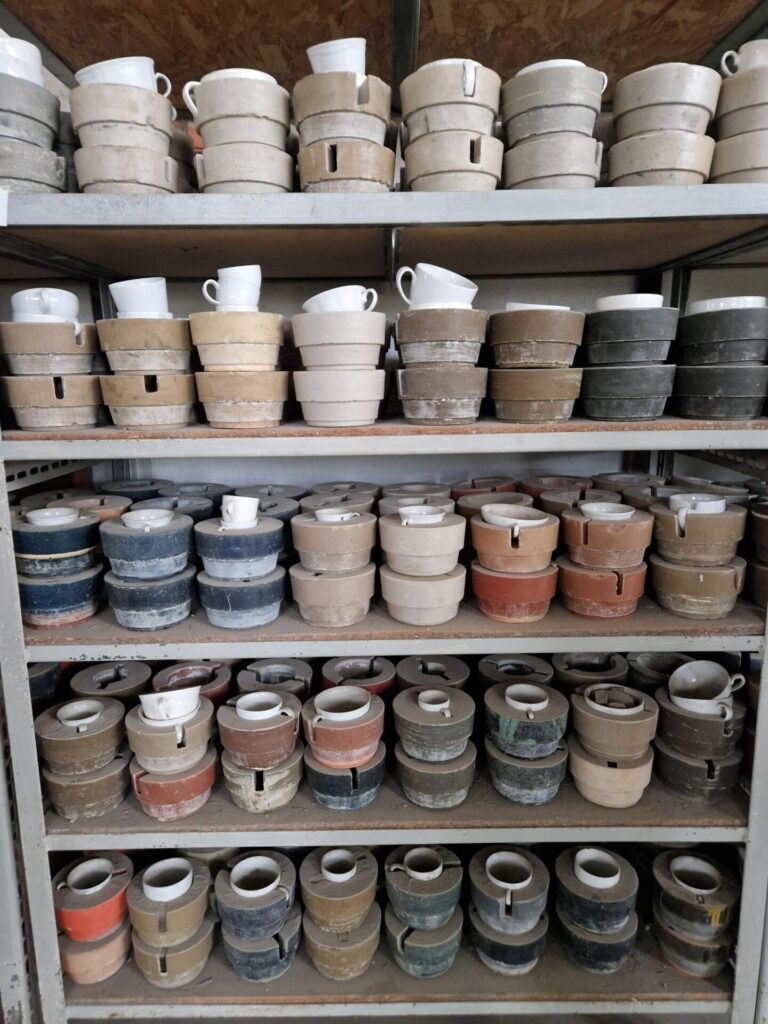
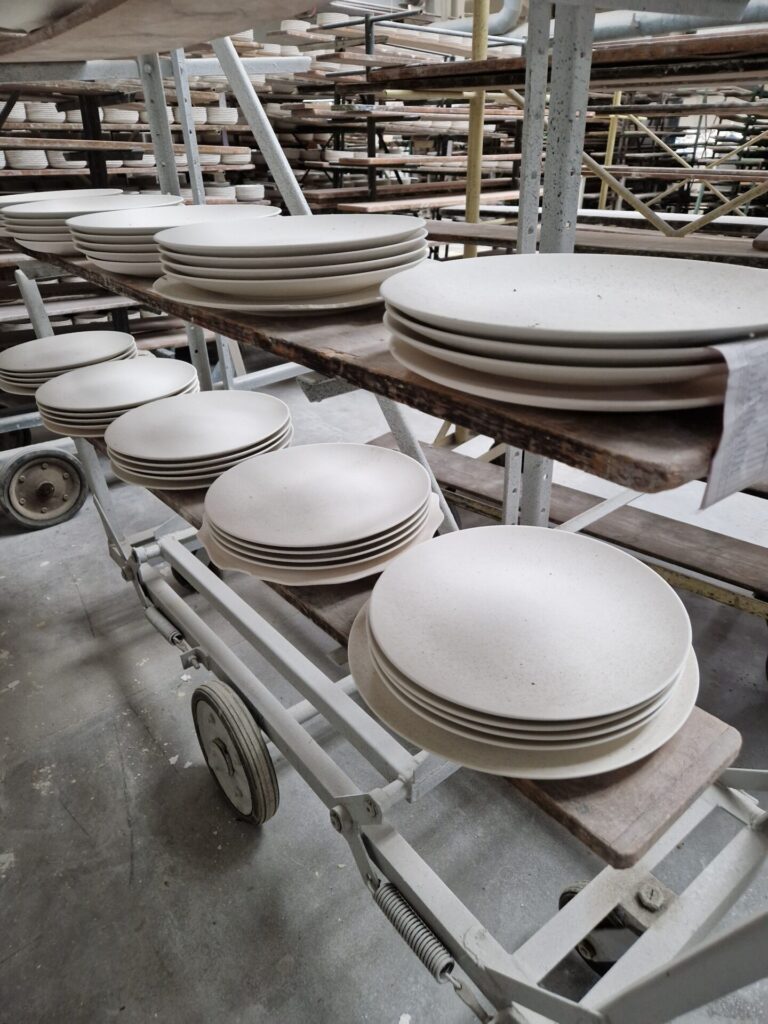
For nearly 200 years of its history, the factory was the main place of employment for the town of 3,500 inhabitants (Jaworzyna Śląska), which was established in connection with the railway line built in 1843. The Porcelain Factory was the largest employer, employing nearly 1,000 workers at its peak.
The collapse of the plant caused a local crisis in the labour market, forcing former employees to look for new jobs. The closure of the plant leads to the impoverishment and depopulation of the town. During its heyday, the factory was not only a place of work, but also a centre of local culture and sport. Adaptive reuse would also contribute to sustainable development, recycling existing structures, reducing material waste and lowering environmental costs compared to new construction.
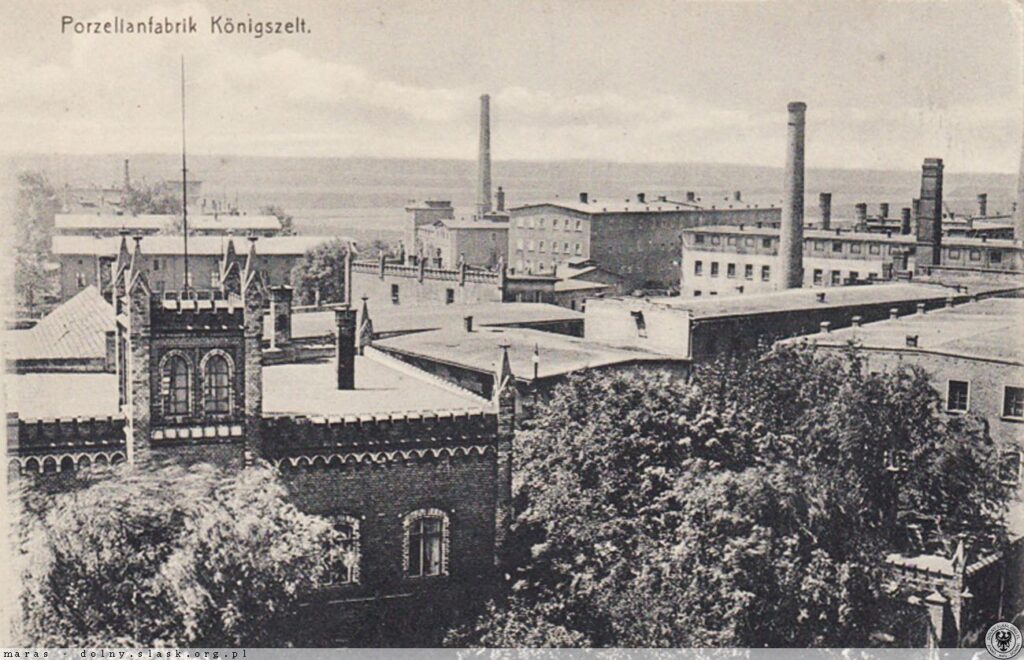
Preserving the entire plant for municipal, economic and cultural purposes could halt the process of impoverishment of the town. Introducing municipal functions to the factory site will raise the profile of the town, which currently has no communal spaces for residents (market square) and does not even have a restaurant or hotel.
Preserving the plant for the construction of social spaces will raise the status of the town, attracting local and external investors.
Failure to take action and leaving the plant without support will result in the sale of historical equipment at scrap prices, the devastation of undeveloped buildings and the deepening of the town’s decline.
The local community is determined to preserve the plant as a testament to the glory of porcelain production, but also to introduce urban functions such as shops, market squares, restaurants and artistic activities to the disused plant.
The current local government wants to stop the future degradation of the factory located in the very centre of the town. Unfortunately, it is struggling with local financial problems related to rising unemployment and the decline of the factory, which was one of the most important pillars providing funds for the town’s budget.
Support for the project to preserve the former Porcelain Factory in its entirety, together with its existing equipment, would be a project of regional importance, a centre of information on the history of Silesian porcelain, but also an important testimony to the development of the porcelain industry in Europe.
The factory halls have unique, rare reinforced concrete structures from the early days of the use of reinforced concrete in construction.
The preservation of the unique production buildings constructed during different periods of the factory’s development will be an important trace of Europe’s technical and architectural heritage. Protecting both tangible and intangible elements ensures continuity of Europe’s cultural memory, bridging industrial heritage with contemporary community needs.
Condition of Preservation
The Karolina Porcelain Factory ceased production in 2023. Since then, the plant has been undergoing liquidation (bankruptcy proceedings). To date, no one has come forward to purchase the historic plant in its entirety. The next step in the receiver’s proceedings is to sell the plant in parts: equipment and individual buildings separately. If this process is implemented, the plant will lose its historical integrity and will be stripped of its equipment, facilities and part of its infrastructure.
The factory is complete with full production, social and office equipment. The heating and lighting systems are still operational, and the water supply and sewage systems are in good working order. Last winter damaged part of the heating system. Security of the site and buildings is still maintained.
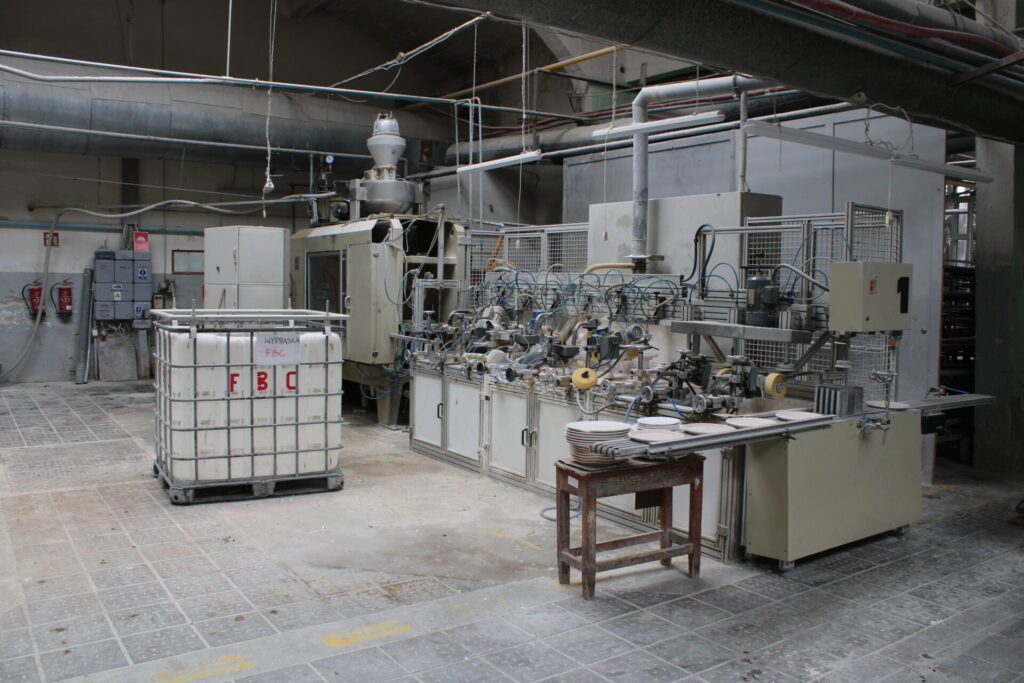
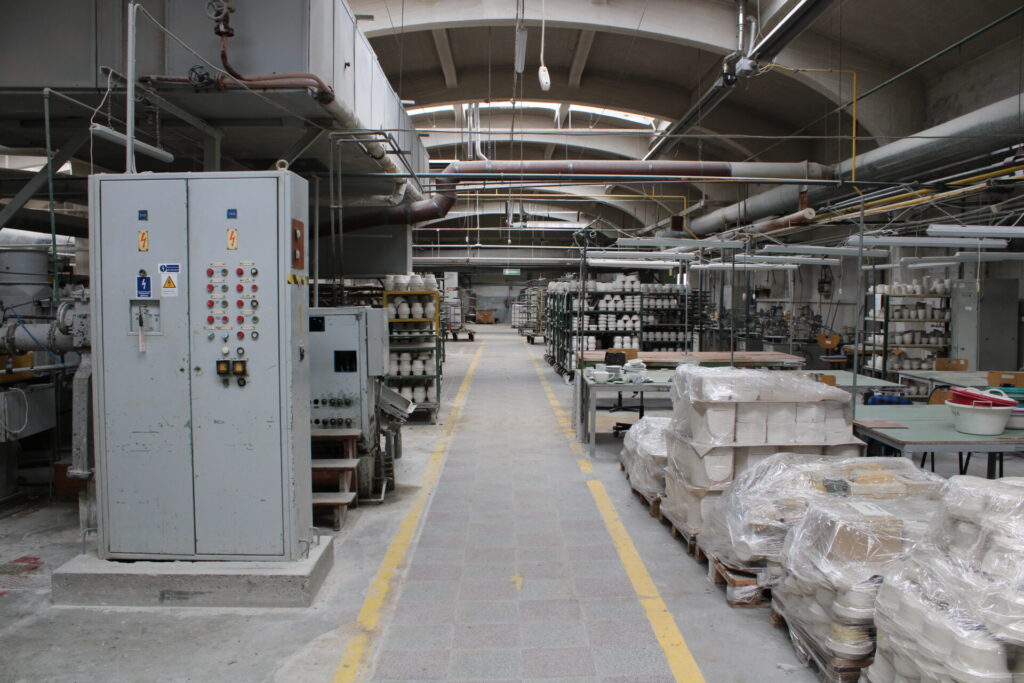
The property is uninhabited. Potential threats include theft of equipment and vandalism of the preserved infrastructure. If the equipment is sold (mostly for scrap) and the property is divided up, the Factory Complex will be degraded and lose its historical value. Dividing the property among potential new owners will result in the loss of the opportunity to develop the site into a town centre. Unsold parts of the buildings will fall into disrepair.
The only way to save the plant in its entirety is for it to be taken over by the local government and for a project to be implemented to adapt it for municipal, commercial and cultural purposes.
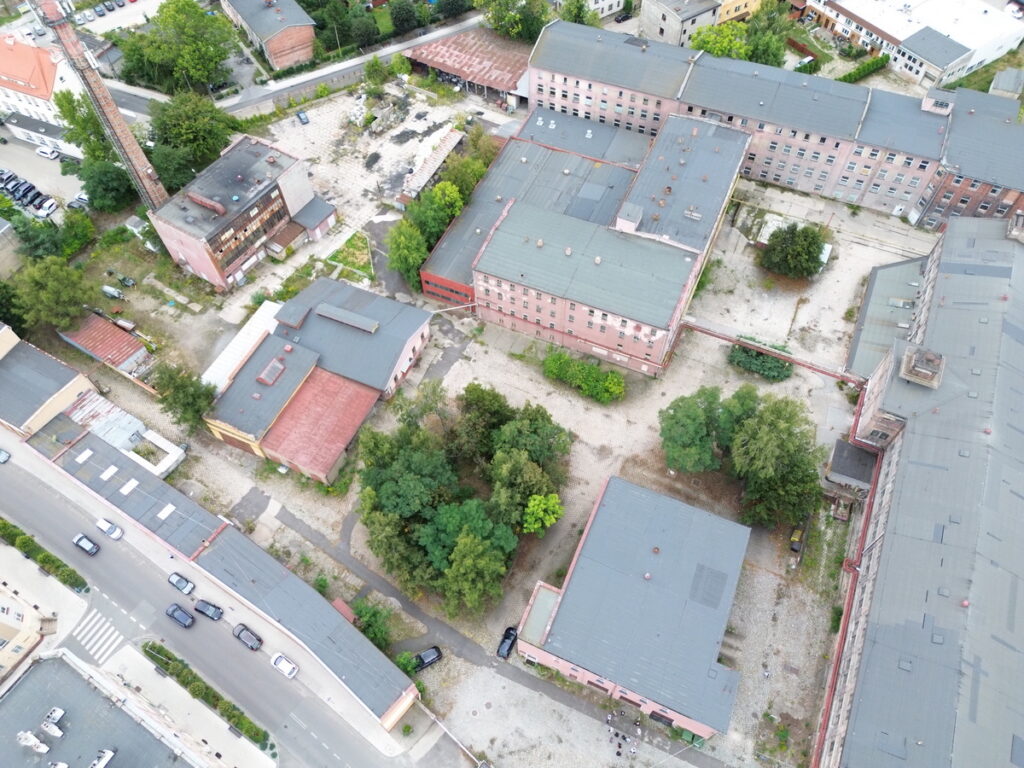
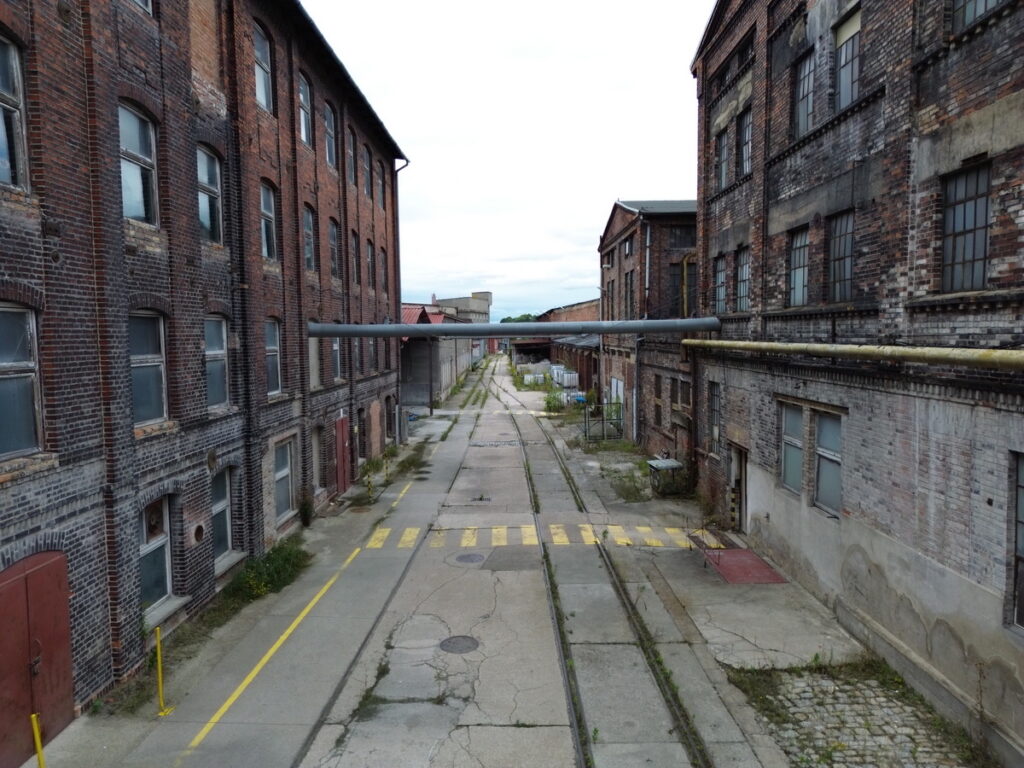
Threats
The threats to the Karolina Porcelain Factory are man-made. The plant is in liquidation, with a court-appointed bailiff selling the assets. Despite a tender, no buyer has been found for the entire factory (offered at approximately EUR 8,250,000). If no single buyer emerges, the bailiff will begin selling off equipment and then individual buildings. This process is likely to take many years and will result in the progressive disintegration of the factory complex, stripping it of equipment, infrastructure, and ultimately its integrity as a heritage site. Once divided, the site will lose its potential to become a common municipal area (e.g. a market square) for Jaworzyna Śląska.
The natural buyer of the factory should be the local government, but lack of funds prevents the city from acquiring the assets. Without corrective measures, the likely path of deterioration is deconstruction, neglect of unsold buildings, vandalism, and eventual irreversible loss of the factory’s historical value.
Expected Gains from Designation
Designation on the List will ensure recognition of the site, unlocking new potential for the development of the town and municipality. This status will raise the site’s visibility in Europe and worldwide, attracting tourists, experts, and institutions supporting heritage protection.
It will also strengthen the identity and pride of the local community, as residents gain confirmation that their heritage is significant on a European scale. Such recognition encourages greater involvement in activities aimed at protecting and promoting the site.
The designation can serve as an impetus for sustainable development: through promotion and protection, KAROLINA may become a catalyst for economic growth based on cultural tourism, education, and new socio-cultural initiatives.
Jaworzyna Śląska already benefits from convenient connections with major cities such as Gdynia, Jelenia Góra, Legnica, Wałbrzych, Wrocław, and Warsaw. Its accessibility for visitors from across Poland enhances the potential for tourism development and for hosting regional and national events. These connections also make it possible to create thematic tourist packages linking Jaworzyna Śląska’s heritage with other attractions of Lower Silesia, further strengthening its position in the European cultural landscape.
MEDIA ABOUT Karolina Factory:
- https://doba.pl/dsw/artykul/byla-symbolem-miasta-upadla-po-160-latach-dyskutowano-nad-przyszloscia-zakladow-porcelany-karolina-/57012/15
- https://walbrzych.naszemiasto.pl/zaklady-porcelany-stolowej-karolina-w-jaworzynie-slaskiej-zamkniete-i-wystawione-na-sprzedaz-jedyny-taki-mlyn-i-piec-ogromne-hale-i-sprzet/ar/c1p2-27399697
- https://swidnica24.pl/2024/08/zaklady-porcelany-karolina-uda-sie-uratowac-potrzebny-jest-tylko-rzetelny-i-uczciwy-wlasciciel/
- https://tvn24.pl/wroclaw/jaworzyna-slaska-fabryka-porcelany-karolina-wciaz-bez-kupca-st8320680
- https://wszystkoconajwazniejsze.pl/pepites/upadaja-zaklady-porcelany-stolowej-karolina-w-jaworzynie-slaskiej/
- https://fabrykiwpolsce.pl/fabryka-porcelany-ogloszono-jej-upadlosc/
- https://www.money.pl/gospodarka/legendarny-polski-zaklad-upada-po-160-latach-dzialalnosci-nie-ma-kupca-7101681482562208a.html
- https://gazetawroclawska.pl/nie-bylo-chetnych-na-fabryke-porcelany-w-jaworzynie-slaskiej-karolina-znowu-na-sprzedaz-tak-zaklad-wygladal-w-srodku-przed-upadloscia/ar/c1p2-27289343
- https://www.youtube.com/watch?v=A_P5fPwZ5AM
- https://www.bankier.pl/wiadomosc/Upadla-ponad-160-letnia-fabryka-porcelany-Karolina-czeka-na-wycene-Jeszcze-jest-nadzieja-8793775.html
- https://swidnica24.pl/2025/02/zaklady-porcelany-karolina-uda-sie-uratowac-drugie-podejscie-do-sprzedazy/
- https://radiosudety24.pl/jaworzyna-slaska-ogloszono-upadlosc-karoliny-ostatniego-producenta-porcelany-na-dolnym-slasku,a4598
- https://www.money.pl/gospodarka/nie-ma-kupca-na-ostatnia-fabryke-porcelany-w-regionie-sprzet-bedzie-nadawal-sie-na-zlom-7101783718976128a.html
- https://biznes.interia.pl/gospodarka/news-karolina-upada-nie-zglosil-sie-chetny-na-zakup-legendarnej-f,nId,7872932
- https://www.fakt.pl/pieniadze/upada-160-letnia-fabryka-porcelany-karolina-pracowalo-w-niej-180-osob/7pb7ywg
- https://www.muratorplus.pl/biznes/firmy-i-ludzie/zaklady-porcelany-stolowej-karolina-ida-na-czesci-doslownie-nikt-nie-chce-kupic-fabryki-syndyk-wyprzeda-ja-w-kawalkach-aa-3aQJ-TSnF-isFv.html
- https://biznes.interia.pl/gospodarka/news-karolina-na-sprzedaz-krzysztof-do-rozborki-smutny-koniec-sl,nId,7869875
- https://wroclaw.tvp.pl/83904922/brak-zainteresowanych-kupnem-fabryki-porcelany-karolina
- https://tvn24.pl/wroclaw/jaworzyna-slaska-kolejna-proba-sprzedazy-fabryki-porcelany-karolina-st8316212
- https://www.rmf.fm/styl-zycia/news,73427,koniec-pewnej-epoki-dlaczego-nikt-nie-chce-kupic-polskiej-legendy.html
